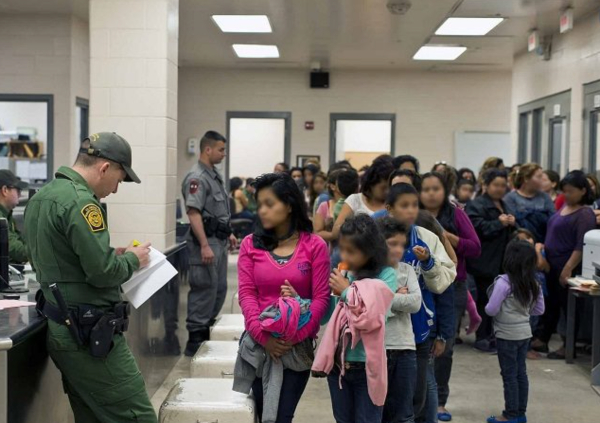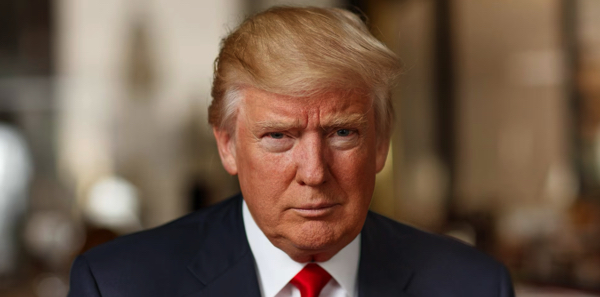 Parler
Parler Gab
Gab
- The Trump administration emphasizes voluntary repatriation flights (e.g., to Mexico, Colombia, Venezuela) instead of forced deportations, prioritizing dignity and safe returns.
- Leveraging Section 241(b) of immigration law, the U.S. negotiates with nations to accept deportees, including third-country nationals (e.g., Guatemala as a "safe third country," El Salvador's Terrorism Confinement Center).
- Multiple countries, including Mexico (38,000 deportees), India, Rwanda (in talks) and Central American nations, collaborate on deportation efforts, often with U.S.-funded support.
- The Department of Homeland Security (DHS) offers financial incentives and travel assistance via the CBP Home App for undocumented migrants to leave voluntarily, reducing enforcement costs and risks.
- Unlike abrupt expulsions, the U.S. coordinates shelters (e.g., Ciudad Juárez), transit hubs (Honduras) and monitored housing to ensure orderly returns.
Mexico
Despite lacking a formal agreement, Mexico has already accepted 38,000 deportees from the U.S., including 5,000 non-Mexican nationals. Temporary shelters near Ciudad Juárez have been constructed to accommodate returning migrants.Guatemala and El Salvador
Following negotiations with Rubio, Guatemala agreed to a 40 percent increase in deportation flights, accepting not only its own citizens but migrants of other nationalities as "safe third country" partners. Meanwhile, El Salvador's President Nayib Bukele announced his country would take imprisoned deportees of any nationality, housing them in the new 40,000-capacity Terrorism Confinement Center, though the U.S. will bear associated costs.Venezuela and Honduras
After initial tensions, Venezuela resumed accepting its nationals deported from the U.S. in March 2024. Meanwhile, Honduras has acted as a "humanitarian bridge" for Venezuelan deportees transiting between the U.S. and their home country.Panama and Costa Rica
Panama, the first nation to accept third-country deportees, has housed 299 migrants in police-monitored hotels under a U.S.-funded program. Costa Rica has also begun receiving non-citizen deportees, primarily from Asia, before facilitating their return home within six weeks.India and Rwanda
India has cooperated with U.S. deportation efforts, accepting verified nationals before Prime Minister Narendra Modi's White House visit. Rwanda, meanwhile, is in early-stage talks to potentially receive deportees, signaling broader global engagement.Trump administration launches self-deportation assistance program
Aside from global partnerships, the Department of Homeland Security (DHS) also rolled out a new assistance program encouraging illegal immigrants to voluntarily leave the United States. On May 5, DHS announced the initiative, offering financial and travel assistance to undocumented migrants willing to self-deport through the newly launched CBP Home App. "If you are here illegally, self-deportation is the best, safest and most cost-effective way to leave the United States to avoid arrest. DHS is now offering illegal aliens financial travel assistance and a stipend to return to their home country through the CBP Home App," said DHS Secretary Kristi Noem. "This is the safest option for our law enforcement, aliens and is a 70 [percent] savings for U.S. taxpayers." (Related: Trump administration proposes $998 daily fines on migrants defying deportation orders.) The first chartered flight under the program departed Houston, Texas, on May 19, carrying 64 individuals back to Colombia and Honduras. "This was a voluntary charter flight, not an ICE operation," the DHS said. Follow InvasionUSA.news for more stories about illegal immigration in America. Watch border czar Tom Homan telling Veronika Kyrylenko of the New American magazine that the U.S. border is broken by design.More related stories:
Democrats under fire for helping illegal immigrants evade deportation.
ICE raids underway as Trump administration launches historic DEPORTATION operation.
Honduras threatens to expel U.S. military over Trump's deportation plans.
Sources include: YourNews.com TheEpochTimes.com Brighteon.comUtah uranium mine approval sparks debate over energy security vs. environmental risks
By Willow Tohi // Share
Trump administration cracks down on foreign truck drivers amid safety concerns
By Laura Harris // Share
Trump doubles steel tariffs to 50%, vows to protect U.S. industry
By Laura Harris // Share
Department of Education uncovers nearly $90 million in improper federal student aid payments
By Laura Harris // Share
Governments continue to obscure COVID-19 vaccine data amid rising concerns over excess deaths
By patricklewis // Share
Tech giant Microsoft backs EXTINCTION with its support of carbon capture programs
By ramontomeydw // Share
Germany to resume arms exports to Israel despite repeated ceasefire violations
By isabelle // Share










